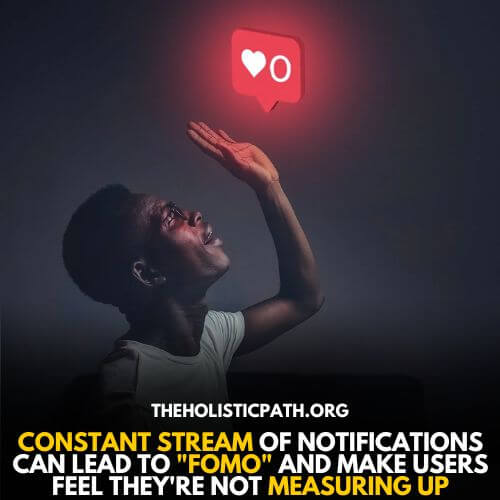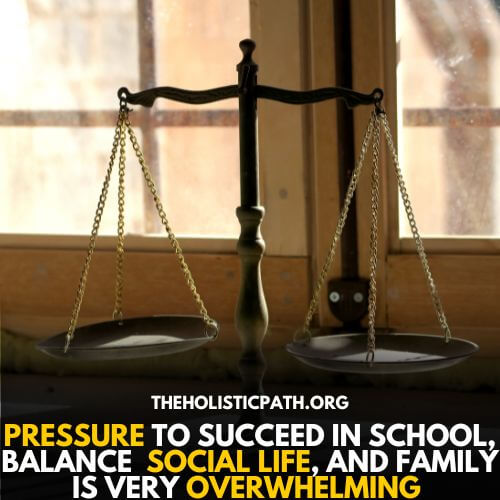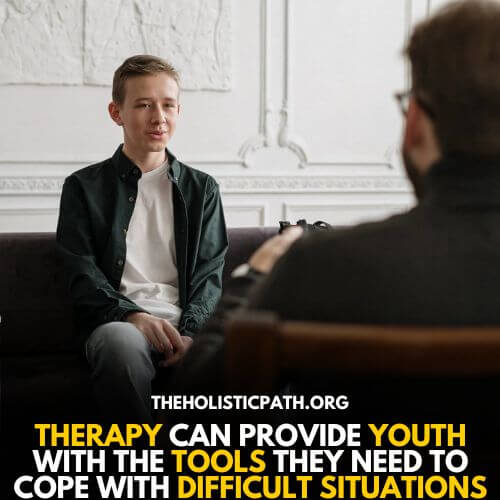In recent years, there has been a growing awareness of the youth mental health crisis. They’re juggling school, extracurricular activities, and social lives, all while trying to figure out who they are and what they want to do with their lives. It’s no wonder that so many young people are experiencing mental health problems. In fact, the youth mental health crisis is a very real and serious issue.
While the exact causes of this crisis are still unknown, there are a number of factors that are thought to contribute, including social media, school pressure, and family stress. Whatever the cause, it is clear that something needs to be done to support young people who are struggling with their mental health.
In this article, we will explore the youth mental health crisis in more depth and discuss what can be done to help young people who are struggling.
Youth Mental Health Crisis
According to the National Alliance on Mental Illness, one in five youth aged 13-18 experiences a mental health condition. That means that 20% of our youth population is struggling with things like anxiety, depression, ADHD, eating disorders, and more. And these numbers are only increasing; the number of youth aged 12-17 who had a diagnosis of depression increased by 63%.
In addition, 70% of youth in juvenile correction facilities have at least one mental health disorder. Suicide is the 2nd leading cause of death for youth ages 10-24. For Indigenous youth, the rate of suicide is 5 times the national average.
Only 20% of children with diagnosable mental health conditions receive treatment.
So why is this happening? There are a number of factors that can contribute to mental health problems in youth, including social media, academic pressure, bullying, and trauma. Genetic factors, early life experiences, abuse and trauma, relationship problems, and societal factors such as poverty and discrimination can also play a role.
And it’s not just one thing – it’s a combination of all of these things that can lead to youth mental health crises.
The causes of this crisis are complex and multi-layered. One is the transition from childhood to adolescence, which can be a difficult and confusing time for many young people. Add in the pressure of exams and social media, and it’s no wonder so many youths are struggling.
There are also biological factors at play; the teenage brain is still developing, making adolescents more prone to impulsive behavior and mood swings. And then there are the environmental factors, such as poverty, family conflict, or trauma.
It’s clear that something needs to be done to address the youth mental health crisis. These statistics demonstrate the need for increased awareness and access to resources for youth mental health. By working to reduce stigma and providing support, we can make a difference in the lives of young people.
What Are The Main Causes Of Mental Health Issues Among Youth: Theories On Youth Mental Health Crisis
Youth mental health is a growing concern. While the exact causes are still unknown, there are a few theories that stand out. One theory is that youths are under more pressure than ever before. With social media, they’re constantly exposed to images of perfection and led to believe that’s what they should be striving for.
This can lead to feelings of inadequacy and anxiety.
Another theory is that there’s been a decrease in youth resilience. In the past, youths had to deal with more hardships, such as poverty or war. This meant they were more likely to develop coping mechanisms that would help them later in life.
Nowadays, however, life is much easier for youths, which may make them less able to deal with difficult situations later on. Whatever the cause, it’s important to be aware of the signs of mental illness in youths so that we can help them get the support they need.
1. Social Media And Technology
As a society, we’ve become increasingly reliant on social media and technology. We use it to stay connected with friends and family, to access news and information, and to entertain ourselves. However, there is a growing body of evidence that suggests that our heavy use of social media and technology is having a negative impact on youth mental health.

For example, studies have shown that social media can cause feelings of isolation, anxiety, and depression. It can also lead to increased comparison and self-criticism, as users compare their own lives to the perfectly curated images they see on their feeds.
In addition, the constant stream of notifications can lead to “FOMO” (fear of missing out) and make users feel like they’re not measuring up.
The problem is particularly acute for youth, who are still in the process of developing their identity and sense of self-worth. They’re also more likely to spend lengthy periods of time on social media and other screens, as they don’t have other responsibilities like work or childcare. As a result, they’re more susceptible to the negative effects of social media and technology.
2. Peer Pressure And Bullying
Rates of anxiety, depression, and suicidal thoughts are skyrocketing, and many experts believe that peer pressure and bullying are to blame. After all, adolescence is a time when fitting in is more important than ever, and those who don’t conform to the norms can quickly become targets.
The constant fear of being ridiculed or ostracized can take a serious toll on young people’s mental health, leading to serious problems down the road. Bullying doesn’t just hurt the victims; it also takes a toll on the bullies themselves.
Research has shown that children who bully others are more likely to struggle with mental health issues later in life. So, it’s clear that peer pressure and bullying are not only a cause of youth mental health problems but also a symptom of deeper issues.
Addressing these problems is essential if we want to help our youth thrive.
3. Academic Pressure And School Performance
The pressure to succeed in school has always been intense, but it seems to be reaching a breaking point for today’s youth. The mental health of young people is in crisis, and academic pressure is one of the leading causes.
The pressure to get good grades, get into a good college, and find a good job is overwhelming, and it’s taking a toll on our youth.

They’re experiencing anxiety and depression at record levels, and many are turning to drugs and alcohol to cope. It’s time for us to take action and relieve the pressure on our youth. We need to give them the support they need to thrive mentally and academically.
Otherwise, we’ll continue to see an increase in youth mental health problems.
4. Trauma And Abuse
Trauma and abuse are major causes of youth mental health crises. According to the National Alliance on Mental Illness, 60% of youth aged 12-17 have experienced at least one traumatic event, and 1 in 4 youth have experienced multiple traumas.
These experiences can include physical, sexual, or emotional abuse; witnessing violence, or being exposed to other traumas such as natural disasters or parental divorce. Traumatic experiences can have a profound effect on youth mental health, leading to symptoms of anxiety, depression, post-traumatic stress disorder, and other mental health disorders.
Often, these youth turn to harmful coping mechanisms in an attempt to numb the pain they’re feeling. This can lead to self-harm, eating disorders, and even suicide.
The youth mental health crisis is a complex problem with no easy solution. However, addressing the issue of trauma and abuse is a critical first step. By providing support and resources for youth who have experienced trauma, we can help them heal and prevent further mental health problems down the road.
5. Pandemic
Rates of anxiety, depression, and other mental health disorders have been on the rise for years. And now, with the pandemic raging across the globe, things seem to be getting worse.
There are a number of reasons why the pandemic has had such a profound impact on youth mental health. For one thing, the increased isolation and loneliness that many young people are feeling can be extremely detrimental to their mental well-being.
In addition, the constant stress and uncertainty that comes with living through a pandemic can also take a toll. And then there’s the fact that many of the support systems that young people rely on – like schools and extracurricular activities – have been taken away.
All of this has contributed to what many experts are saying is a youth mental health crisis of unprecedented proportions. If we don’t do something to address it, the consequences could be devastating.
Example Of A Mental Health Crisis
An example of a mental health crisis is an individual who experiences a psychotic break and begins to exhibit signs of paranoia, delusions, or hallucinations. It can be defined as a situation in which an individual experiences a sudden, intense, and overwhelming psychological or emotional difficulty that seriously impairs their ability to function.
Some common signs that someone may be experiencing a mental health crisis include feeling suicidal, having a panic attack, experiencing overwhelming feelings of anxiety, or feeling out of control and unable to cope.
Youth mental health crises can take many forms, but some common examples include suicidal thoughts or behaviors, self-harm, severe anxiety or depression, and substance abuse. In general, a mental health crisis occurs when an individual is experiencing such intense emotions or overwhelming stress that they are unable to function in their day-to-day lives.
For youth, this can often manifest as skipping school, withdrawing from friends and activities, and engaging in risky behaviors. If you are worried that someone you know is in the midst of a mental health crisis, it is important to reach out for help. You can start by talking to a trusted adult, such as a parent, teacher, or counselor.
What Is The Most Common Illness Among Youth?
There are a lot of different mental health illnesses out there, and it can be tough to know which one is the most common among youth. Here are some general statistics:
- Depression is the most common mental health disorder among adolescents, with about 20% of teenagers experiencing depression at some point during their teenage years.
- Anxiety disorders are also common, affecting approximately 15% of adolescents.
- Eating disorders are less common than depression or anxiety, but still affect a significant number of young people, with about 5% of teens struggling with anorexia or bulimia.
- Attention deficit hyperactivity disorder (ADHD) affects between 2 and 16% of school-aged children.
- Finally, conduct disorder and oppositional defiant disorder are two types of behavioral disorders that are relatively common among teenagers, affecting between 2 and 9% of adolescents.
As you can see, there are a lot of different mental health illnesses out there that can affect youth. If you’re concerned that you or someone you know may be struggling with a mental health disorder, it’s important to reach out for help.
Talk to a trusted adult, like a parent or teacher, or seek professional help from a therapist or counselor. Remember, you’re not alone in this!
Causes Of Depression And Anxiety Among Youth
Depression is a common mental health issue that can have a significant impact on youth. While the exact causes of depression are not fully understood, there are several potential contributing factors.
For example, youth who experience bullying or who have a history of abuse or trauma may be more likely to develop depression. Additionally, youth who have a family member with depression may be at increased risk.
The major contributing factors of anxiety among youth include; the pressure to succeed in school, balance extracurricular activities and social life, and manage family expectations can be overwhelming for many young people.
Additionally, the constantly connected nature of modern life can make it difficult to disconnect and relax, which can lead to increased levels of stress and anxiety.
Common Signs That Someone May Be In A Mental Health Crisis
It can be tough to tell when someone is going through a mental health crisis. Youth often experience mental health crises differently than adults, so it’s important to be aware of the signs. Some common indicators that a youth is in crisis include:
- Withdrawing from friends and activities that they used to enjoy.
- Rapid mood swings or sudden changes in behavior.
- Drastic changes in appearance.
- Exhibiting recklessness or risky behavior.
- Making comments about self-harm or suicide.
- Changes in eating or sleeping habits.
- Having problems at work or school.
- Expressions of hopelessness or despair.
- Self-harming behaviors such as cutting or burning.
- Extreme agitation or irritability.
- Making plans or threats to harm oneself or others.
If you notice any of these signs in yourself or someone you know, it’s important to reach out for help. There are many resources available to youth, and getting professional help can make all the difference.
Address The Youth Mental Health Crisis
While there is no easy fix, there are a few things that can be done to address the problem.
- First and foremost, we need to destigmatize mental health. Too often, youth feel like they can’t talk about their mental health because they’re afraid of being labeled as “crazy” or “weak.” We need to create an environment where it’s okay to talk about mental health, and where youth feel comfortable seeking help.
- We also need to provide better access to mental health services. Unfortunately, many youths don’t have access to the resources they need. This can be due to a lack of insurance, transportation issues, or simply not knowing where to turn for help. We need to make sure that youth have easy access to mental health services so that they can get the help they need.
- Finally, we need to focus on prevention. Mental health problems often start in childhood or adolescence. If we can identify risk factors early on, we can intervene before problems develop. This might involve providing support for kids who are going through tough times, such as divorce or bullying. It might also involve teaching kids how to cope with stress and build resilience.
Addressing the youth mental health crisis is a complex task, but it’s one that we must take on if we want our youth to thrive. By taking steps to destigmatize mental health, improve access to services, and focus on prevention, we can make a difference in the lives of our young people.
Treatment For Youth Mental Health Crisis
Mental health crises can occur in people of any age, but they are most common in young people. A mental health crisis can be a very frightening experience for both the person experiencing it and their loved ones. There are many treatments available for youth mental health crises. Some of the most common treatments include
1. Therapy And Counseling
Therapy and counseling can prove to be very useful when we talk about youth mental health crises. It gives youth a chance to talk about what’s going on in their lives and to get some help and support. Therapy can provide youth with the tools they need to cope with difficult situations and to make positive changes in their lives.

Counseling can also help youth to understand their thoughts and feelings, and to find healthy ways to deal with them. If you or someone you know is struggling with mental health issues, please don’t hesitate to reach out for help.
There is no shame in getting the support you need.
2. Family Counseling
Family counseling can be extremely helpful for youth mental health. It provides a space for youth to openly share their feelings and experiences with their family, in a safe and confidential setting.
Family counseling also gives youth the opportunity to develop healthier coping skills and strategies for dealing with difficult emotions and situations. In addition, family counseling can help to improve communication and relationships within the family.
By attending family counseling, youth can learn how to better express themselves and feel heard and supported by their loved ones.
3. School-Based Programs
School-based programs are a great way to promote youth mental health. By providing support and education in a safe and familiar environment, these programs can help young people learn about and cope with mental illness.
In addition, school-based programs can help to reduce stigma and encourage open discussion about mental health. This can be incredibly valuable for youth, who may feel isolated and alone in their struggles.
Ultimately, school-based programs can play a vital role in the mental health of youth by promoting awareness and understanding.
4. Education
When youth are equipped with the knowledge about mental health, they are better able to understand their own thoughts and feelings. This understanding can help youth identify early signs of mental illness and seek appropriate help.
In addition, education about mental health can help reduce the stigma surrounding mental illness.
When youth understand that mental illness is a real and common condition, they are more likely to seek help when they need it. Lastly, education about mental health can help youth build resiliency skills. When youth know how to manage stress and cope with difficult emotions, they are less likely to develop serious mental health problems.
Education about mental health is an essential part of promoting youth mental health.
5. Self-Care
Self-care is any activity that we do deliberately in order to take care of our mental, emotional, and physical health. Although it’s often thought of as something we do to pamper ourselves, self-care is actually essential for our well-being.
When we make time for self-care, we’re better able to cope with stress, solve problems more effectively, and maintain healthy relationships. For youth, who are still developing emotionally and are often under a lot of pressure at school and home, self-care is especially important.
Through regular self-care practices, youth can develop a stronger sense of self-awareness and learn how to manage their emotions in healthy ways. Additionally, self-care can help youth to build resilience and cope with difficult life events.
By taking care of themselves, youth can develop the skills and strength they need to lead happy and fulfilling lives.
6. Medication
For youth struggling with mental health issues, medication can be a very helpful tool. It can help to regulate moods, lessen anxiety and improve impulse control. When combined with therapy and other supports, medication can make a big difference in helping youth to manage their mental health.
Of course, medication is not right for everyone, and it is important to work closely with a mental health professional to determine whether it is the right option for you or your child. But for many youth, medication can be a key part of getting the help they need to feel better.
7. Support Groups
Support groups can be helpful for youth mental health for a few different reasons. First, support groups provide a sense of community and belonging. When you feel like you’re part of a group, you feel less alone and more supported.

Second, support groups can offer practical advice and tips from people who have been through similar experiences. It can be helpful to hear how others have coped with challenges that you’re facing. Lastly, support groups give you an opportunity to share your own experiences and help others by being a listening ear.
If you’re looking for a youth mental health support group, there are many resources available online and in community centers.
8. Positive Reinforcement
Positive reinforcement is a process whereby desired behaviors are encouraged by providing rewards or reinforcement. This can be in the form of verbal praise, tangible rewards, or increased privileges. Positive reinforcement is helpful for youth mental health because it promotes desired behaviors, builds self-esteem, and teaches coping skills.
It can also help reduce negative behavior. Providing positive reinforcement in a consistent and meaningful way can help youth to develop healthy habits and feel good about themselves.
Final Thought
The youth mental health crisis is a real and pressing issue. The sooner we start to address the problem, the better. We need to destigmatize mental illness, provide more resources for those who are struggling, and start having honest conversations about mental health. Only then can we hope to make a dent in this growing problem.
Refernces
Hollis, C. (2022). Youth mental health: risks and opportunities in the digital world. World Psychiatry, 21(1), 81–82. https://doi.org/10.1002/wps.20929
Chadi, N., Ryan, N. C., & Geoffroy, M. C. (2022). COVID-19 and the impacts on youth mental health: emerging evidence from longitudinal studies. Canadian Journal of Public Health, 113(1), 44–52. https://doi.org/10.17269/s41997-021-00567-8
Pandemic accelerated youth mental health crisis. (2022, October 28). News. https://www.hsph.harvard.edu/news/hsph-in-the-news/covid-youth-mental-health-crisis/
Tackling the mental-health crisis in young people. (2022, August 24). Nature. https://www.nature.com/articles/d41586-022-02206-9?error=cookies_not_supported&code=cefbd691-c99e-4df6-8f3b-4f0f8f0a1f81
Wiederhold, B. K. (2022). The Escalating Crisis in Adolescent Mental Health. Cyberpsychology, Behavior, and Social Networking, 25(2), 81–82. https://doi.org/10.1089/cyber.2022.29237.editorial
